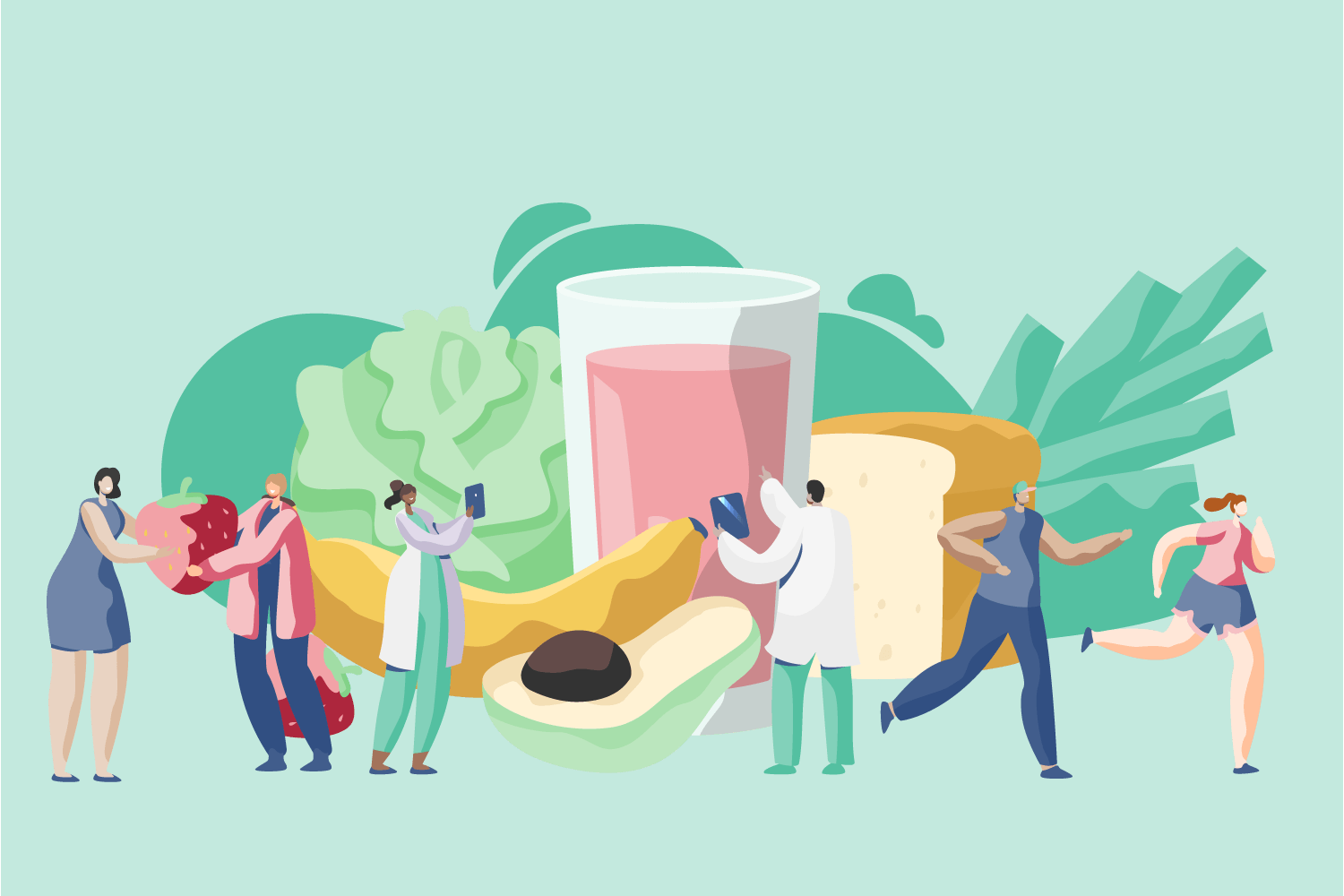Where do Nutritionists and Dietitians Work?
Nutrition, health and wellness are the centre of our goals, to-do lists and New Year’s resolutions, so it’s not surprising that the industry is booming. So what kinds of workplaces might you find yourself in if you decide to become a nutritionist or dietitian?

As people are looking out for their health, they often seek guidance from those with expertise such as nutritionists and dietitians. Most people have heard that weight loss is 75 percent diet and 25 percent exercise. As a result, people are often seeking out nutrition experts to get a great eating plan that will help them achieve all of their goals. But there’s more to being a nutrition professional than just meal plans! It’s important to understand where your career could lead before you decide whether being a nutritionist is right for you.
What is the difference between a nutritionist and a dietitian?
Nutritionists do not require any formal prerequisites, but often study a Diploma of Nutrition or a Certificate in Nutrition. Dietitians, on the other hand, are required to complete a Bachelor’s Degree in Nutrition and Dietetics. The term ‘nutritionist’ is not regulated, so while nutrition scientists, dietitians and graduates may use it, it can also be used by those with limited knowledge or minor study.
In Australia, all dietitians are considered nutritionists; however, nutritionists without the appropriate accreditations are not considered dietitians. To be considered a dietitian, you need to be registered in the Accredited Practising Dietitian program (APD) and nationally recognised by the Dietitians Association of Australia (DAA). The APD is recognised by Government bodies such as Medicare, the Department of Veterans’ Affairs as well as other private health insurances.
Nutritionist vs Dietitian: What’s the Difference?
The difference between a nutritionist and a dietitian might seem hard to spot from a distance. So, what’s the difference between a nutritionist and a dietitian?
Where do nutritionists and dietitians work?
Both nutritionists and dietitians are able to gain employment with a variety of employers such as fitness centres, aged care, sporting organisations, Government health departments, schools and even media. But dietitians, due to their additional accreditations, can also work in private practice, hospitals, general practice, major healthcare institutions and nutrition research.
Patient Care
Roles in patient care involve assessing the individual nutritional needs of patients. This can mean educating them on their food choices and eating habits whilst also monitoring the food intake and nutritional value of the food. Dietitians can consult with additional healthcare professionals to adjust and manage the dietary and nutritional needs of patients. Specialisations include paediatrics, eating disorders and chronic diseases.
Food Management/Aged Care
Nutrition professionals in this sector implement management skills alongside nutrition expertise for food services in hospitals, aged care, Meals on Wheels and hospitality. Places like nursing homes, care facilities and hospitals require dietitians to manage their health programs, standards and nutrition services.
Public Health Sector
Roles like public health and promotions officer or community development officer focus on delivering health and nutrition education programs at a community level as well as at a national level. Setting nutritional standards, implementing new policies, health promotion and health planning are all aspects of working as a nutritionist or dietitian in public health.
Sports Nutrition
Sports nutritionists and dietitians focus on providing educational material to athletes and teams to support them in enhancing their performance. Eating plans are designed to provide athletes with appropriate nutrients to allow them to achieve their full potential. Dietitians and nutritionists in sports nutrition work with elite sportspeople, active Australians and up-and-coming athletes to aid them with recovery and optimising health.
Private Practice & Consultancy
In private practice nutritionists and dietitians work with individuals and groups to look at their health concerns and goals. Eating plans are calculated based on nutritional value, potential deficiencies, pre-existing health conditions and health goals. These prescribed food plans are adjusted and regularly assessed based on client response, nutritional value, food allergies or health issues. Those who work in private practice most often work in weight or chronic disease management. Some avenues include counselling, group programs, consultation and writing for publication.
Nutrition Research
Dietitians in this field investigate health and nutrition issues and focus on developing nutritional recommendations. These recommendations can be used to inform Australians’ diets, obesity prevention strategies and national nutritional standards. The research field also includes teaching doctors, student dietitians and other healthcare professionals.
Food Industry
Nutritionists and dietitians in the food industry are responsible for quality systems, food law and food safety. Nutrition-related marketing and public relations, consumer education as well as educating health professionals and research are all aspects of working in the food industry.
If you want to help people achieve their goals, educate them on nutritious eating habits and promote healthy food service management, a career as a dietitian or nutritionist might be a perfect fit for you!

Nutritionist and Dietitian Careers in Australia: A Beginner’s Guide
This guide will teach you everything you need to know about the field of nutrition and dietetics and tells you the steps you need to take to become a nutritionist or dietitian.



